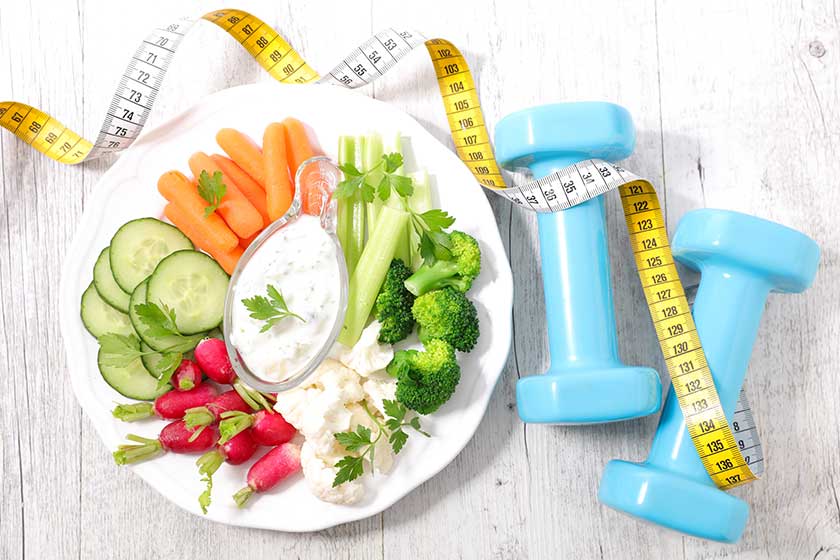As we age, our metabolism tends to slow down, making it harder to shed those extra pounds. However, it’s never too late to adopt
healthier eating habits that can help you or your loved ones achieve weight loss after 50. In this article, we’ll explore five essential aspects of a balanced diet and lifestyle that can make a significant difference in achieving and maintaining a healthy weight well into your golden years.
Balanced Nutrition for Longevity
A fundamental pillar of healthy living, especially for those in their golden years, is maintaining a balanced diet. It involves embracing a diverse range of food groups, including whole grains, lean proteins, colorful fruits, and vegetables. These nutrient-rich foods provide essential vitamins, minerals, and dietary fiber, all of which play a vital role in supporting overall health and effective weight management.
Whole grains such as brown rice, quinoa, and whole wheat bread are excellent sources of complex carbohydrates, offering sustained energy and aiding in digestion. Lean proteins like poultry, fish, beans, and tofu not only contribute to muscle maintenance but also help control hunger, preventing overeating. Incorporating a colorful array of fruits and vegetables into your meals ensures a wide spectrum of antioxidants and phytochemicals, which can help combat age-related diseases and support weight loss efforts.
Portion Control Matters
One of the keys to successful weight loss after 50 is vigilant portion control. With the natural slowing down of metabolism as we age, our calorie needs decrease. Consequently, it’s crucial to pay close attention to portion sizes to avoid overindulgence. An effective strategy is to use smaller plates and utensils, which can visually deceive your brain into thinking you’ve consumed more than you have. Additionally, it’s essential to listen to your body’s cues. Stop eating when you feel satisfied, not when you’re uncomfortably full, to maintain a healthy calorie balance.
Mindful Eating Practices
Mindful eating is a powerful practice that involves being fully present during meals, savoring each bite, and attentively responding to your body’s hunger and fullness signals. This approach can help those in their golden years make healthier food choices and prevent overconsumption. To practice mindful eating, create a calm and distraction-free dining environment. Turn off the television and put away your smartphone during meals to focus entirely on your food.
Savor the flavors and textures of each bite, and take your time. Eating slowly not only enhances the dining experience but also allows your brain to register satiety signals more accurately. By paying close attention to your body’s cues, you can avoid unnecessary snacking and maintain better control over your calorie intake.
Stay Hydrated
Proper hydration is often underestimated when it comes to weight management, especially for residents in their golden years. Sometimes, the body can confuse thirst for hunger, leading to unnecessary calorie consumption. To combat this, make it a habit to drink plenty of water throughout the day. Herbal teas and low-sugar beverages can also serve as excellent options to stay hydrated without adding extra calories to your diet.
Adequate hydration not only supports overall health but also aids digestion and helps maintain optimal bodily functions. Drinking a glass of water before meals can also promote a feeling of fullness, reducing the likelihood of overeating during your main course.
Regular Physical Activity
A holistic approach to weight loss after 50 should encompass regular physical activity. Engaging in exercises suitable for your fitness level can help burn calories, build lean muscle mass, and improve metabolism. Physical activity is not only beneficial for weight management but also enhances mobility and overall health.
Low-impact exercises such as walking, swimming, and yoga can be excellent choices for those in their golden years. These activities offer cardiovascular benefits, strengthen muscles, and improve flexibility. Strength training is another valuable component of a fitness routine for residents, as it helps maintain muscle mass, which naturally declines with age. Consult with a healthcare professional or a fitness expert to develop a personalized exercise plan that suits your needs and abilities.
Weight loss after 50 is achievable with the right combination of healthy eating habits and lifestyle changes. Maintaining a balanced diet, practicing portion control, embracing mindful eating, staying hydrated, and incorporating regular physical activity into your routine are essential steps toward achieving and maintaining a healthy weight in your golden years. Remember that it’s never too late to start prioritizing your health, and by implementing these habits, you can enjoy a vibrant and fulfilling life. If you or your loved ones are considering a senior living that promotes healthy living, consider exploring
Pointe LifeSpring, where a supportive environment awaits your golden years. Start your journey to a healthier you today.







